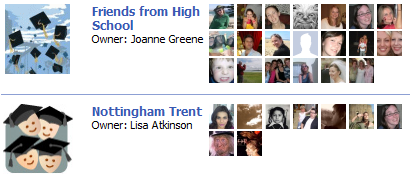Recommendation has always played a significant role in purchasing decisions. This is why customer service is so important; because you knew if someone had an exceptionally good/bad experience that they would be in the pub that evening telling all their friends. So along comes the internet and suddenly that highly vocal individual can be shouting your praises/damnation to a much wider audience and much quicker. Even if the individual involved doesn’t contribute to a blog, the internet and technology means we are much more connected through means such as text message, instant messenger, Twitter, Facebook etc; meaning we have a much wider circle of influence.

It is much easier to maintain relationships with people over greater distances in time and space than ever before, as we aggregate our relationships and syndicate our own personal status. So now we can share with a much wider circle our opinions, as they relate to a product or service, or politics. Facebook is particularly interesting in this context because it is viral by design, pushing out your actions across your network and vice versa.
[more]
So currently we can maintain very wide networks, but we have very little control over the depth of the network. Everyone is blanket labelled a ‘friend’ and it doesn’t reflect that there are some people with whom I’d be willing to share far more information than perhaps I would want to share with the more casual acquaintances on my network. We are just beginning to be able to start adding this depth through services like Plaxo; where we can aggregate our online presences and push them out to filtered groups. Currently the groups are very restricted to just Family, Friends, Work Colleagues. This is a gross simplification of our real very complex relationships. However as we see our ability to connect online develop we are sure to see more complex dynamics reflected. We have already seen some Facebook apps try and make a start at this e.g. Cirlce of Friends and Facebook recently introduced the feature where you can filter your news feed, weighting it more heavily towards certain people and reducing the amount of news you get from others.
Once we have this meta-data layer defined against our network, any recommendations that come out of our network can be weighted appropriately. So if a close friend says she has found a fabulous new product, this will naturally carry more weight with you. Also if a friend who works in a particular field recommends a something related to it then they are already an established voice on the matter and their reputation gives this recommendation more value. We have already seen companies paying individuals with good reputations and networks to recommend their products. However this can be detrimental to reputation as the individual is no longer seen as offering impartial advice, but rather being a walking talking advert.
This dimension of reputation occurs in a tangible way in e-commerce websites like e-Bay . but being able to define a value to a relationship, either through individual and pro-active choice, or through a passive analysis of meta-data then we can add further value to these interactions. This is quite an unusual concept to us currently – to give our relationships a value; it is something we tend to do in a subconscious way and it may seem harsh to us now, but our attention is increasingly valuable and as such I think it is inevitable that we will want to filter the information from our network.
Purchasing decisions need no longer be based on anonymous reviews of third party websites, but by drawing on the knowledge of your network. In some ways we have come full circle from when we were in the pub getting advice from our friends, only now the network we can draw on is much larger and much faster.